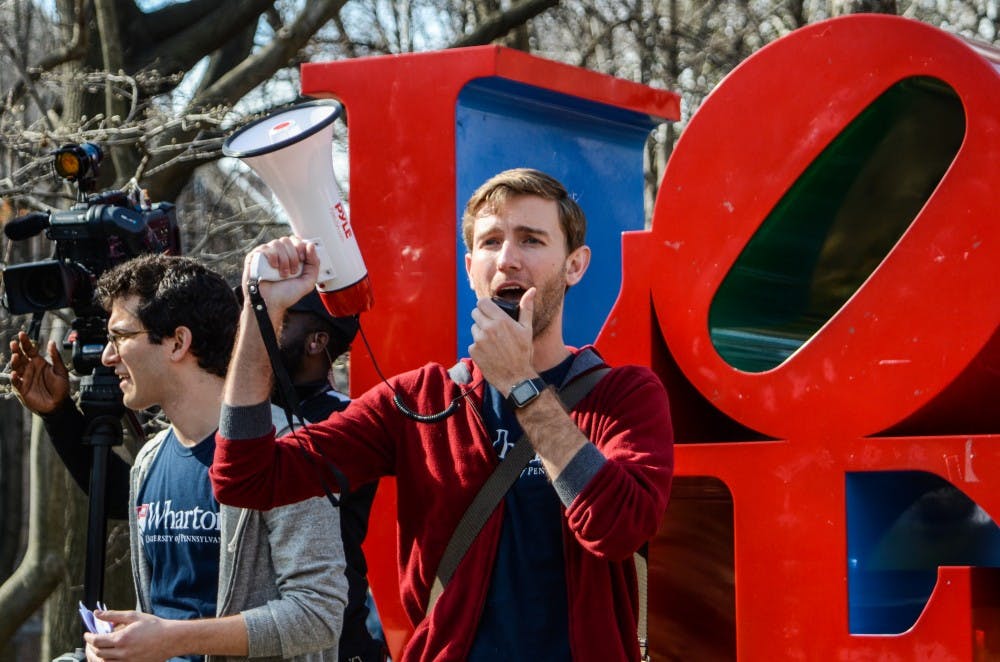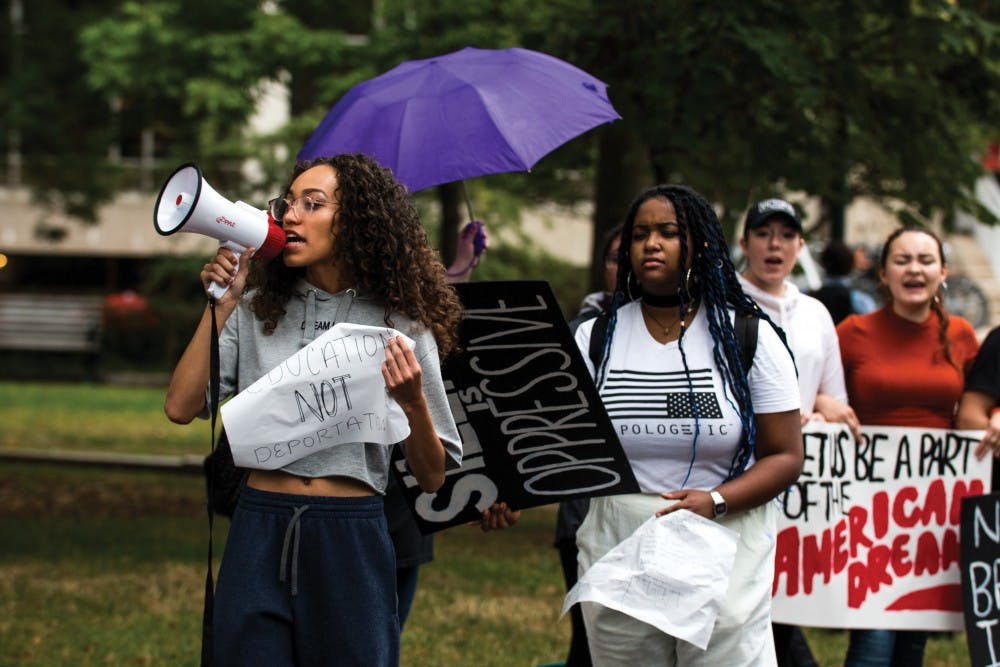
The Trump administration announced a new framework for immigration policy at a press conference on Jan. 25.
The proposed plan would include a $25 billion "trust fund" for increased border security and would end the current diversity visa lottery system. Additionally, it calls for a 10 to 12 year pathway to citizenship "for DACA recipients and other DACA-eligible illegal immigrants," and only allows family sponsorships to be given to spouses and minor children.
For many on campus, on both sides of the political spectrum, the new immigration plan is far from perfect, despite some apparent wins and concessions from both Democratic and Republican leadership.
Last September, Trump announced the end of the Deferred Action for Childhood Arrivals program, which currently protects over 700,000 young people. The ending of the program, which is expected to expire on March 5, led to multiple protests on Penn’s campus by various student groups.

Sociology professor Amada Armenta, who focuses on federal deportation policy as well as local law enforcement practices in her research, said she feels the new proposed plan is “terrible” in nature.
Armenta said the prospect of eliminating the diversity visa lottery system could lead to more unsafe practices.
“When you restrict immigration, when you cut down legal avenues for entry,” Armenta said, “it creates undocumented migration."
Penn for Immigrant Rights media liaison and College sophomore Erik Vargas echoed this sentiment. Vargas, who is an undocumented immigrant, said that while he feels the proposed pathway includes certain positives, he is "strictly against" it due to its focus on increased border enforcement.
“It sounds good in the moment,” Vargas said, “but in 10 years I can see this completely turning into some other immigration crisis.”
Michael Moroz, College and Wharton sophomore and co-director of the editorial board of College Republicans, expressed support for the proposal.
"It’s a very effective approach that Trump took because he offered citizenship not only for DACA recipients but for anyone eligible. So he offered basically the maximum possible deal in terms of the citizenship he could offer," Moroz said.
“Unfortunately, the deal may not happen simply because the Democrats and pro-DACA groups are reacting with almost a hysterical approach. Of course the Democrats shut down the federal government on behalf of illegal immigrants who technically don’t have the right to be here," Moroz said. "I think the deal is only hammered by the Democrats' unwillingness to compromise with Trump because they see themselves in almost existential battle with him as president.”
Political Science professor Michael Jones-Correa also analyzed some of the changes promoted by the Trump administration.
He said under the current law eligible individuals may apply for citizenship after five years of living in the United States, but under the proposed plan that time frame is nearly doubled. Jones-Correa added he believes there is little support for the administration's plan due to its "pairing of" conservative proposals and a pathway to legalization.
Both Jones-Correa and Armenta argued that the administration is attempting to entice the Democratic party, which is heavily focused on protecting DACA individuals, so that the Democratic legislators will concede to the more restrictive policies related to border security and the diversity visa lottery system.
“The majority of Americans support a pathway to citizenship for DACA-eligible youth,” Armenta said. “And the idea then that the White House wants to use this sort of legalization program in exchange for their very Draconian immigration policy is pretty outrageous.”
Armenta also described the proposed allocation of $25 billion for the border wall as “remarkable.” She argued that the border is a political invention and that there is little basis for the plan to focus on increased border security in terms of national polls and migration research.
According to National Public Radio, Senate Majority Leader Mitch McConnell (R-Ky.) has stated that he will host a floor debate on immigration in the upcoming weeks.
As politicians like Senate Minority Leader Chuck Schumer (D-N.Y.) have openly opposed the new proposal, it is clear that there will be more ongoing debate for the next few weeks and even months before the expiration of DACA.
"The problem is that as a nation," Armenta said, "these sort of debates that we're having about who deserves to be here are as long as our nation's history."
The Daily Pennsylvanian is an independent, student-run newspaper. Please consider making a donation to support the coverage that shapes the University. Your generosity ensures a future of strong journalism at Penn.
Donate




